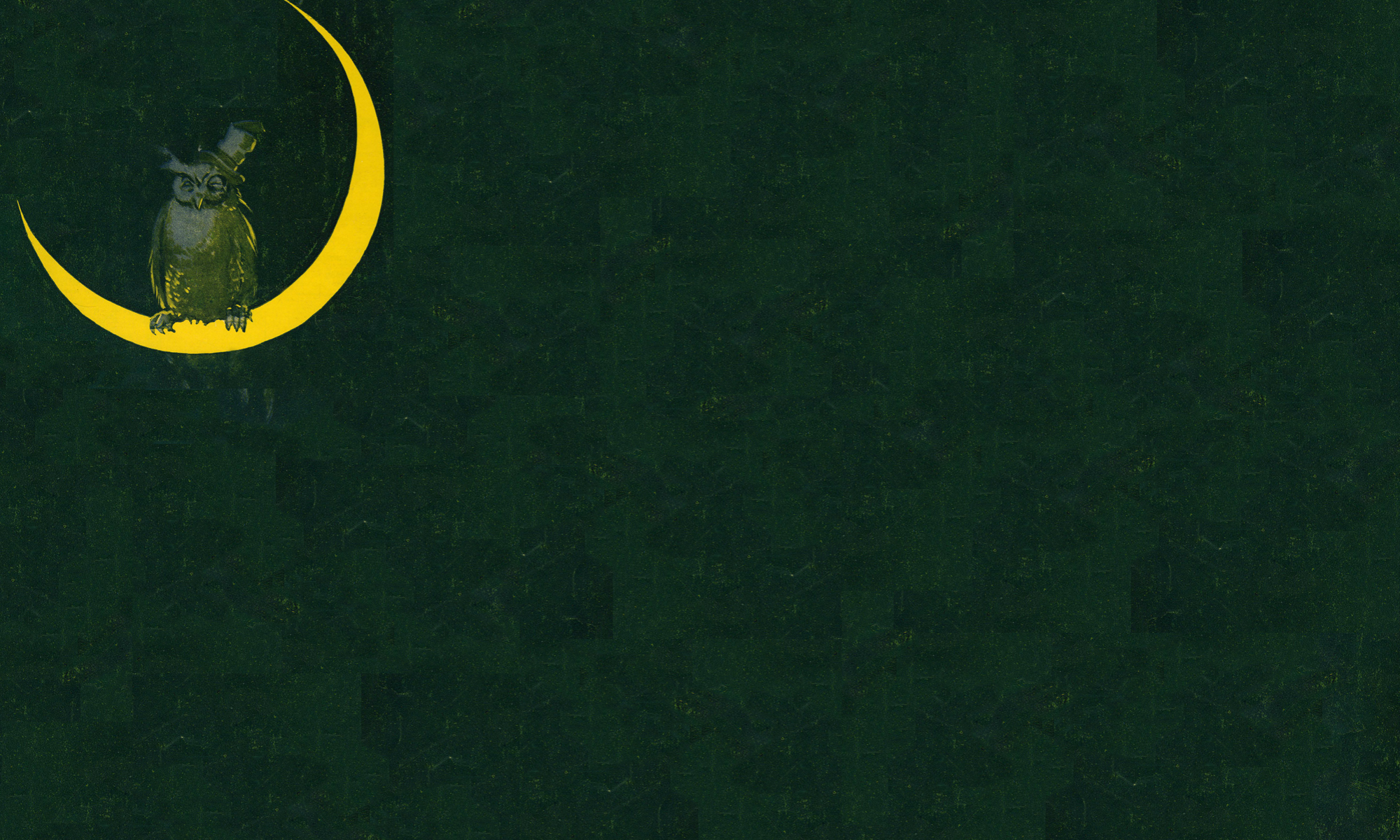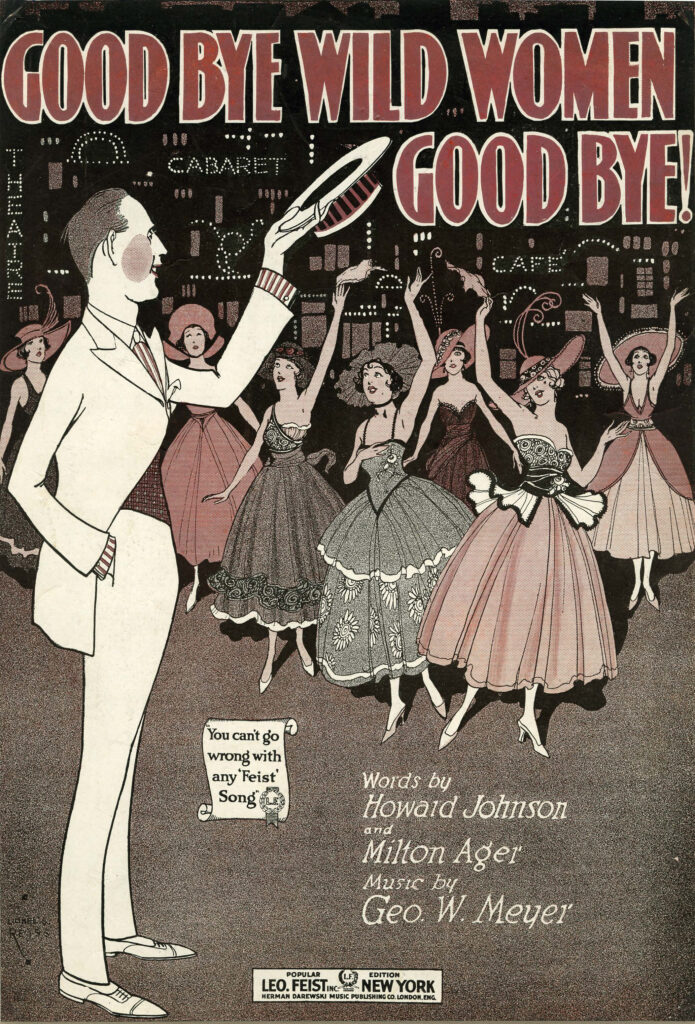by Howard Johnson, Milton Ager, and George W. Meyer (1919, James Edward Myers Sheet Music Collection)
George Meyer, Milton Ager and Howard Johnson’s song, Goodbye, Wild Women, Good Bye, was published in 1919 by the Leo Feist Company, one of the largest publishers of Tin Pan Alley music, in response to the passage of the Prohibition legislation.
While Meyer’s melody and accompaniment relied heavily on syncopated ragtime rhythms, Ager’s and Johnson’s lyrics convey many of the negative stereotypes about women and alcohol held by men that were typical of the 1920s and 30s.
Their lyrics, created to counter the temperance and suffrage societies’ implementation of Prohibition, crudely lament men’s inability to access free-flowing alcohol and women. In the song’s chorus the narrators asks, “How on earth do you expect to win ‘em, unless you get a little bit of good liquor in ‘em?” This chauvinistic attitude by men was one of the primary reasons why these societies sought to use Prohibition to change men’s behavior. The song’s first verse chorus begins,
Verse Oh, what a terrible blow, Congress said liquor must go; It’s not the drinking that’s got me thinking, that’s not what worries me so. I don’t mind losing my pals, but think of the beautiful gals.
Chorus After the country goes dry, Good-bye, wild women, good-bye! How on earth do you expect to win'em? Unless you get a little bit of good liquor in 'em, The girlies will start to act shy, Right after the first of July; Then e'vry night you'll see many a sinner, Taking his own wifie to dinner, The minute the country goes dry, Goodbye, wild women, good-bye!

